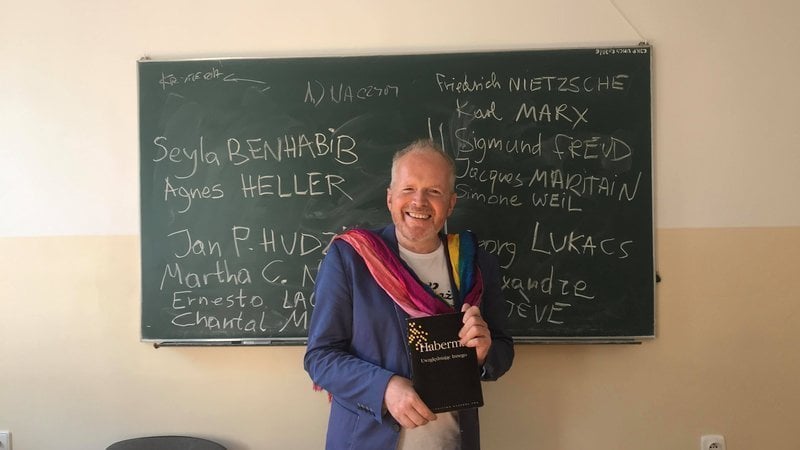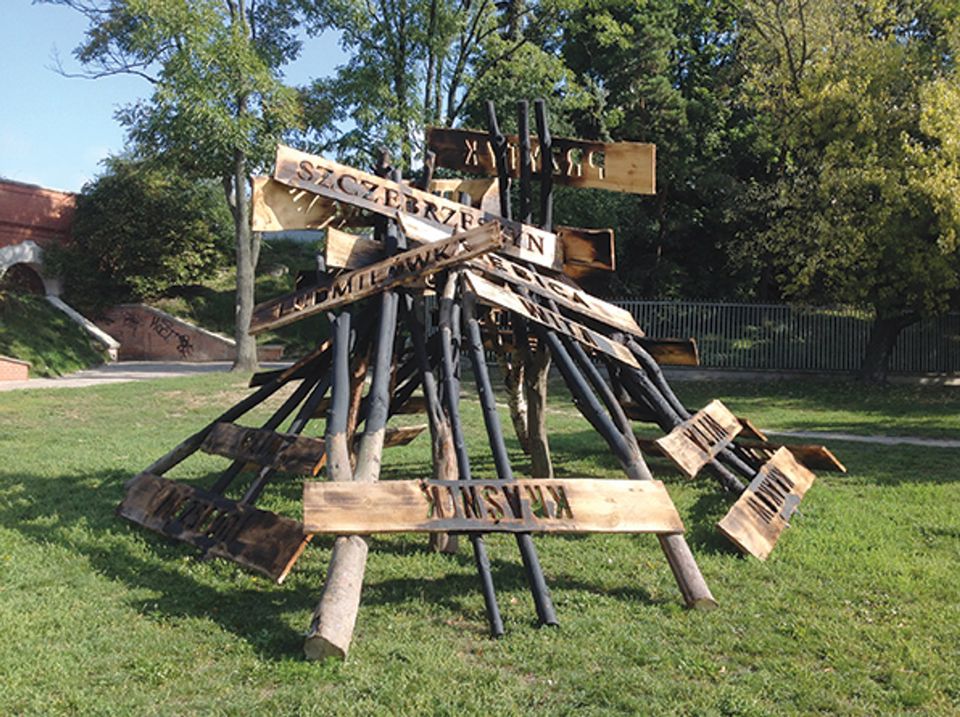Politics
A Right-Wing Politician in Poland Has Threatened a Curator With Jail Over an Artwork Commemorating the Holocaust, Calling It ‘Anti-Polish’
Art historian Tomasz Kitliński defied the politician's orders to remove the work.

Art historian Tomasz Kitliński defied the politician's orders to remove the work.

Sarah Cascone

A Polish art historian and curator who commissioned a memorial to victims of the anti-Jewish pogroms is being sued for defamation by an incoming member of parliament.
After Tomasz Kitliński commissioned the work, titled Judenfrei by the artist Dorota Nieznalska, for the Open City Festival in Lublin, the region’s far-right nationalist governor Przemysław Czarnek demanded its removal because he considered it “anti-Polish. Kitliński defied the order.
In October, Czarnek took to state television to object to the work, which takes its name from a Nazi term for a region that had been “cleansed” of Jews. Memorializing the victims of the Holocaust is a touchy subject in Poland. Since 2018, the country’s government has made it illegal to blame Poland for the atrocities committed on its soil by the Nazis during the Holocaust.
Nieznalska said she was “not surprised” that a government official called for the removal of her work. “In Poland, there has been an official ban on criticizing historical memory for a long time,” she told Artnet News in an email. “In this case, of course, it was a denial of the fact that the Poles pogromed the Jewish community during or just after World War II.”
The artwork came down after the festival ended on October 11, but the controversy flared up again when the Marie Curie-Skłodowska University in Lublin, where Kitliński teaches, awarded Czarnek an honorary medal. In response, the art historian took to the internet to protest the celebration of the politician.
“The governor of Lublin Region prides himself in offending Ukranians, Muslims, the LGBT community, and women, for whom he sees no social role other than the reproduction of children,” he wrote in an online letter, reported by the Art Newspaper.

Dorota Nieznalska’s Judenfrei at the Open City Festival in Lublin, Poland. Photo courtesy of the artist and Tomasz Kitlinski.
Czarnek is now taking legal action. He has the backing of Radio Maryja, a religious radio station that’s been condemned by the Anti-Defamation League, and which airs regular criticism of Kitliński. Should he be found guilty, Kitliński could spend up to two years in jail, the maximum penalty for slandering a public official under Polish penal code.
Kitliński plans to mount a defense on the grounds of free speech, which is protected in the Polish Constitution. “What’s happening to me is also a threat to the Polish art world,” Kitliński told the Art Newspaper. “Our tradition here of critical art will be threatened, punished, and destroyed.” He sees the case against him as a way for the government “to send a signal of intolerance to the population at large.”
Intellectuals from around the world have spoken out in Kitliński’s defense. A petition decrying the “wave of ultra-nationalist far-right social prejudice that is working its way into the institutions of Poland” and supporting Kitliński has nearly 760 signatories, including literary scholar Irena Grudzińska Gross, Courtauld art historian Sarah Wilson, and Los Angeles artist Simone Gad.
The New School in New York City, where Kitliński received a Fulbright scholarship, has called on its community to “support Kitliński’s freedom of speech and his fight against racism, xenophobia, and homophobia in Poland” by adding their names.
“The case of Tomasz Kitliński,” said Nieznalska, the artist behind the pogrom memorial, “is proof of the lack of democracy, free speech in Poland.”